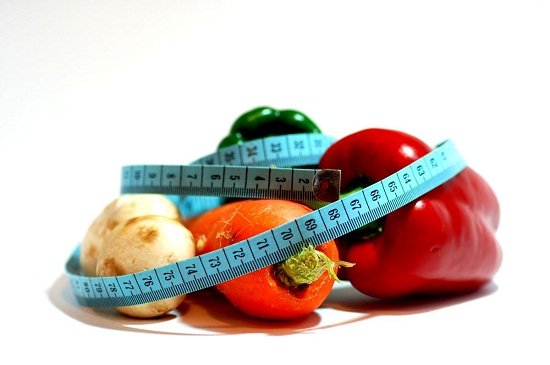Diabetes mellitus (DM), also known as diabetes, is a disease related to metabolism. A person suffering from diabetes has high sugar in his blood stream either due to shortage of insulin in his body or his system is unresponsive to the insulin that does get produced. Diabetic people can be classifed as having Type 1, Type 2 or Gestational Diabetes. Complications of diabetes mellitus include problems in kidneys, eyes, heart, nervous system and skin ailments. It is classified as one of the chronic diseases. Though not curable, DM can be controlled with proper diet, exercise and medicine intake. There are lot of myths about diabetes and diabetic diet. Following are some of the common myths that surround DM and the actual facts regarding diabetic diet:
1. Give up sweet food
You do not increase the blood sugar by eating sugary food. DM is caused due to disorders in the body metabolism. Large intake of sugar should be avoided by people with or without diabetes. This is due to the fact that sugar provides zero nutrition. It simply lowers your immunity and weakens your bones. Diabetic people can have sweet foods provided they are taken in right quantities. You can include chocolates and sweets in your diet but periodically.
2. Say NO to starchy food
Saying NO to carbohydrates can actually leave you exhausted. Carbohydrates is one of the main source of energy required for our body. Starchy foods do contain carbohydrates. This can increase your blood sugar. You can choose to have foods that have low or complex carbohydrates such as oats, okra ,legumes, whole grain bread, brown rice, sweet potatoes and lots of vegetables and fruits. High carb foods or simple carbohydrates have Glycemic Index value of more than 70. Breakfast cereals, potatoes, refined sugar products, white bread and pasta are some of the high carb foods. You can consume certain foods in controlled portions such as nuts, dairy, fruits such as watermelon, berries,oranges and grapes.
3. Diabetic people should always eat diabetic food
Expensive, special diabetic food do not offer any benefit. You can always enjoy your normal food in a reasonable quantity. People with high blood sugar are advised to watch their intake of salt and sugar. You meal should consist of whole grains, good amount of fruits and vegetables.
4. Protein is better than Carbohydrates
The secret is to maintain a healthy balance between proteins, carbohydrates and fat. All these three components are required for the normal functioning of our body. Studies have found that foods with excess protein such as meat can cause cardio-vascular problems. In a day, you should include twenty percent of proteins in your diet.
5. Use medicines as a cover to eat whatever you want
Your medicines work depending on what you eat. You should learn to adjust the type of medicine and the type and amount of food that you eat. This means, you cannot eat whatever you want and increase the intake of medicine. This can prove dangerous. Medicines work only when taken regularly and in right dose.
6. Eat as many fruits as you want
Fruits are healthy and nutritious. They have a lot of fiber and carbohydrates and few of them have lower Glycemic Index value. Some of the fruits with high fiber are avocados, apricots, apples and pomegranates. Fruits with high fructose such as guavas, mangoes and pears can also be enjoyed by diabetic people. The key is to eat the right type of fruit in right quantity.
7. Can consume fatty foods as it does not affect blood sugar
Even though fatty foods do not affect your blood sugar, it can cause heart related problems and cardio-vascular problems are one of the major complication of diabetes. Plan a healthy meal with low fat and salt. Lean meat, low-fat dairy products and oils such as canola/olive can be safely used. Keep an eye on trans fat and saturated fats.
8. Snacking causes high blood sugar
Diabetes can be controlled by eating the right food in correct portions and at right time. Controlling the portions can make you hungry and this may lead to high rise of blood sugar. Plan your diet in such a way that you eat every two hours in small portions. This includes healthy snacking time with low calorie/fat snacks.
9. Artificial sweeteners are dangerous
Artificial sweeteners are low in calories and can be used as a safe alternative for sugar when consumed in right quantities. Aspartame, stevia and agave nectar are few of the sugar substitutes that are tastier, healthier and have fewer calories. Your dietitian can guide you more
about artificial sweeteners and sugar substitutes.
10. Fruit juice is a good substitute for soda pop.
Fruit juice contains carbohydrates and is more nutritious than a soda pop. However, it can rise the sugar levels if not taken in the right quantity. If you do have to consume the juice, adjust your quantity of carbohydrates intake in your meal. Safer alternatives are water and zero calorie drinks.




